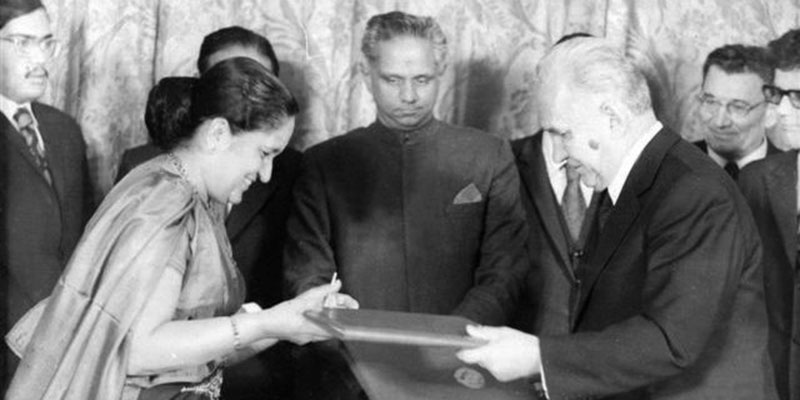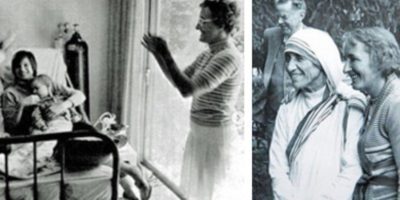Rosalyn Ball is an engagement and equality specialist, speaker and author, who is currently working in the civil service on policy to support marginalised women. Rosalyn is also writing Women Who Won, a book about 70 extraordinary elected women from across the world. She is also the author of The Gender Agenda, a book on gender stereotyping in children.
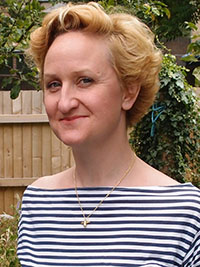
“Historian Prof. Bettany Hughes says research shows only 0.5% of recorded history is about women’s stories – and that’s the reason we don’t know these women’s names, because women have simply been left out of history books. I really want to change that.”
‘The suffragette correspondent’
Looking back at my education and my career, the theme that runs through it is telling stories and particularly stories about the past.
I studied English literature and history of art at Goldsmiths, University of London and then worked for a raucous few years in independent TV comedy production. The BBC then beckoned, and I worked in current affairs and politics, with some Radio 4 on the side, for nearly 15 years.
I loved watching politics up close every day at BBC Parliament and I presented programmes which went some way to explain the history and reasons behind the traditions and procedures. It didn’t escape my colleagues’ notice that I took every opportunity to bring women’s stories into my work, and I would teasingly get called ‘the suffragette correspondent’.
The Gender Agenda
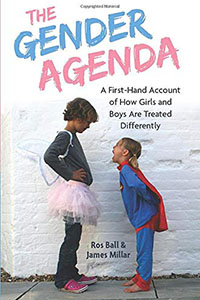
In 2017, with my partner, I published The Gender Agenda, a two-year diary of the way I saw society treat my daughter and son differently because one was a girl and one was a boy. It opened up my world to a network of brilliant campaigning women who were determined to change outdated stereotypes.
Still focused on supporting women
In 2017 the combination of my love for history, politics and women’s stories led me to the best job I’ve ever had, working on the women’s suffrage centenary celebrations for the civil service in Whitehall. I worked on statue unveilings, women’s projects around the country and organised marches, banners and closing ceremonies. It was a joy. Since then I have remained working as a civil servant and am now focused on policy to support marginalised women.
I’m lucky to have an employer who is comfortable with flexible working and I have carved out Fridays as my day to continue to write and I’m currently writing and crowdfunding my new book Women Who Won.
Putting more women into history books
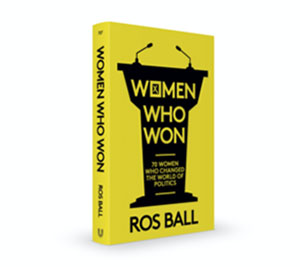
The amazing thing to me is that this book doesn’t exist. No one has ever put together a detailed list of these pioneer women. For example, I bet you don’t know who was the first woman elected to run a country? I’m just astonished that we don’t all know her name, and it’s not because she wasn’t fascinating.
Historian Professor Bettany Hughes says research shows only 0.5% of recorded history is about women’s stories – and that’s the reason we don’t know these women’s names, because women have simply been left out of history books. I really want to change that.
It’s important to me to represent elected women from around the globe, so I’ve profiled women from every continent. The ones I’ve chosen are those who were the first to get elected or the first to be a minister or the first to lead a country, and so on.
The need for a new word – stateswoman?
For me, the most important woman in my book is Sirimavo Bandaranaike. She became Prime Minister of Sri Lanka (then Ceylon) in 1960, the first woman in the world to so.
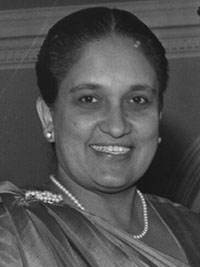
Like many pioneer women in politics, it was the association of her husband that pushed her into the spotlight. In most countries, this is what made women in politics ‘palatable’ to a sceptical public. Her husband was prime minister when he was assassinated in 1959 leaving a political vacuum, and his party looked to his wife to fill it.
Bandaranaike took up this role reluctantly at first, after all, she was still grieving for her partner. The newspapers didn’t know what to call her. “There will be need for a new word. Presumably, we shall have to call her a stateswoman,” London’s Evening News wrote, and “This is the suffragette’s dream come true.”
Time Magazine ran a cover story calling her the ‘Weeping Widow’ which unfairly stuck, meanwhile she was challenged on whether as PM she’d be running a ‘Kitchen Cabinet’.
This different treatment as a woman ultimately did not prevent Bandaranaike from having amazing longevity in politics. She served as Prime Minister three times between 1960-2000 and died after voting on election day in 2000. She withstood an attempted coup, an insurrection and ultimately her legacy was creating an executive presidency that made Ceylon into a republic named Sri Lanka, shaking off the remnants of British colonial rule. That is a phenomenal legacy.
So many women with stories that need to be heard
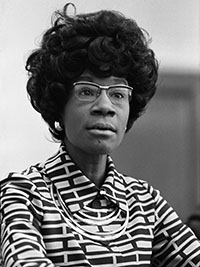
There are so many women like her with stories to be heard, like Shirley Chisholm, the first Black woman elected to the US Congress, and first major-party Black candidate to seek nomination for the US presidency, who said “If they don’t give you a seat at the table, bring a folding chair.”
Then there’s Berta Pīpiņa, the first woman elected to serve in the Latvian parliament in 1919, who strove to enact laws and policies to promote women’s equality but who’s life was later removed from encyclopaedias.
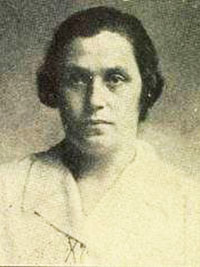
Not to mention there are also women still achieving firsts. So, Women Who Won is both a history book and a record of contemporary women like Jacinda Ardern and Kamala Harris, who have both achieved ‘firsts’ in their countries.
One of the reasons women have traditionally been left out of history books is in part due to the conservative nature of the publishing industry which tends to be very cautious about the subjects they back.
My publisher, Unbound, turns the old model on its head and shifts the power into the hands of the audience. Unbound asks the audience to crowdfund their books, meaning any subject that catches the imagination of enough people can make it to the bookshelves.
Calling all Womanthology readers!
I would love to see Womanthology readers support my campaign to get Women Who Won crowdfunded and published as soon as possible. We’re already 64% funded and I know with your help it won’t be long until we make it a reality.
One of the fun things about crowdfunding is that when you pledge your support it means your name will be printed on the back of the final book. Not only that, there are all sorts of great rewards that you can pledge for alongside your copy of the book such as suffragette badges, guided tours of women’s Westminster, and many more besides.
You can also get your workplace involved if they have a budget to do corporate outreach or diversity and inclusion work. They may want to sponsor a bundle of books to go to a secondary school library or organise a talk from me about what we can learn from women leaders and why we all benefit when there is inclusion at every level of politics, businesses and community.
Time to shift the numbers
Women’s history month is a time I love because I am flooded with fascinating stories about women that aren’t in the mainstream of public history. As with any day or month dedicated to a theme, it’s there because it has been overlooked and needs our attention drawing to it.
Remember that figure – only 0.5% of recorded history is about women’s stories. Women’s history month is a time when we can start to shift the dial on that number – think of all those extraordinary stories that are yet to be told. I hope you’ll support me to tell the stories of the 70 Women Who Won and many more.
https://unbound.com/books/women-who-won/

